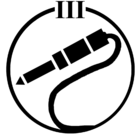These are two quite common problems I have with my Sonos system.
1. I've noticed that quite often when a new unit joins the network (someone coming home with their iPhone, waking a sleeping computer e.t.c.) Sonos will mute and often skip to the next song. I'm quite sure this has to do with DHCP-intervals. So for some reason when a unit gets it's IP refreshed Sonos will lose connection for a while. This could be an issue with my router but since it's a year old Airprort Extreme I would expect it to hande these things quite well. Is there some other Wifi router that is considered more superior in the Sonos context?
2. Another issue I get quite often, especially with the Mac OSX Sonos controller is that it fails to refresh completely. So if I open my laptop and switch to the already running Sonos Controller it's either completely blank or it fails to update to the songs currently playing. Since there's no refresh button a complete restart of the contoller is the solution which feels a bit 1990. I get this in iOS too but I believe it's more common with the laptop version.
So are these problems something extremely uncommon or just the way this software usually behaves?
IP-refresh problems and blank Controller problems
This topic has been closed for further comments. You can use the search bar to find a similar topic, or create a new one by clicking Create Topic at the top of the page.
Enter your E-mail address. We'll send you an e-mail with instructions to reset your password.

